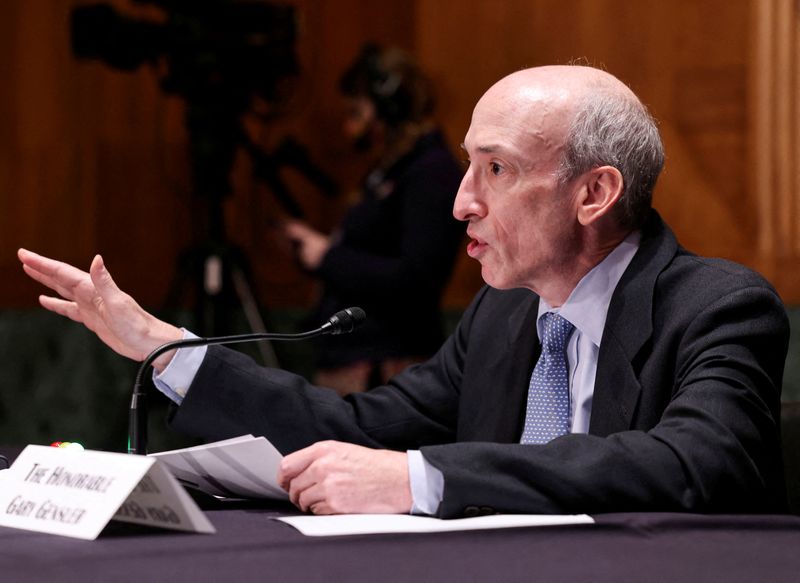(Reuters) - The U.S. Securities and Exchange Commission is investigating whether certain banks may have broken the rules by tipping off hedge funds ahead of large sales of shares, or "block trades," a source familiar with the situation told Reuters on Tuesday.
The scrutiny is part of a years-long investigation into block trading by some of Wall Street's biggest players. Here is a primer on block trading.
WHAT IS A BLOCK TRADE?
The New York Stock Exchange defines a block as at least 10,000 shares or a quantity of stock having a market value of $200,000 or more, whichever is less.
If a seller such as an individual shareholder, a company or a private equity firm were to put a large block onto a public exchange, the order, depending on its size and the liquidity of the underlying stock, could cause the price of the shares to move away from them, driving up costs.
Instead, blocks are usually sent to a wholesale broker, such as an investment bank, that breaks the block into smaller "child orders" and executes them over time with the aim of minimizing the price impact, or shops the order to parties, like hedge funds, it thinks might be interested in taking the other side.
WHAT HAS REGULATORS CONCERNED?
According to media reports, the U.S. Securities and Exchange Commission and the Department of Justice are investigating whether Goldman Sachs (NYSE:GS) and Morgan Stanley (NYSE:MS) may have broken the rules by tipping off hedge funds ahead of large sales of shares. Goldman and Morgan Stanley have not commented.
The SEC scrutiny is part of a long-running inquiry by the agency into block trading practices, predating the current administration, a source told Reuters.
The probe was given renewed focus after the spectacular collapse of family office Archegos Capital Management in March, which led to a number of large block trades that investors said caused material drops in the stocks of several companies that were linked to the investment fund, according to Bloomberg.
Goldman Sachs faces ongoing lawsuits over alleged insider trading related to its role in the unwinding of Archegos' fund.
Under current SEC Chair Gary Gensler, the regulator has focused on initiatives such as tightening up insider trading rules and improving market transparency, including around hedge fund and private equity disclosures.
HOW COMMON ARE BLOCK TRADES?

Broker-dealers frequently buy and sell blocks of shares, either on behalf of clients or as part of a hedging strategy, which are large enough to move underlying share prices. During times of volatility, block trades tend to be more common.
U.S. block trades hit a five-year high in terms of value last year, at $71.8 billion, according to data from Dealogic.